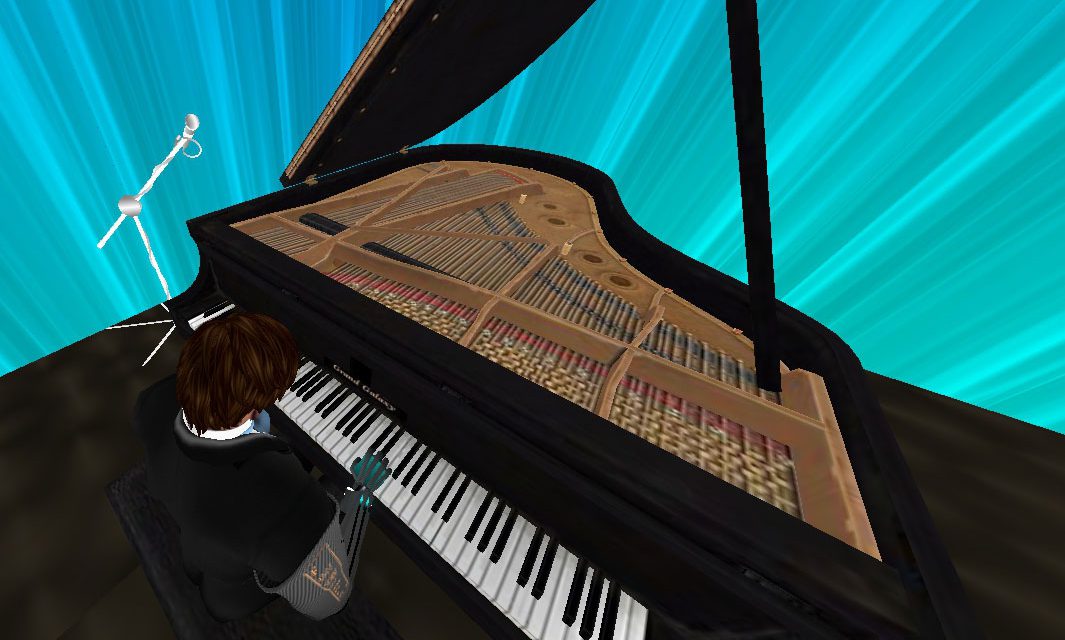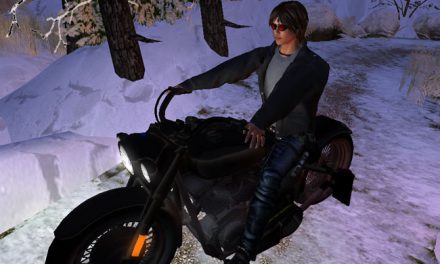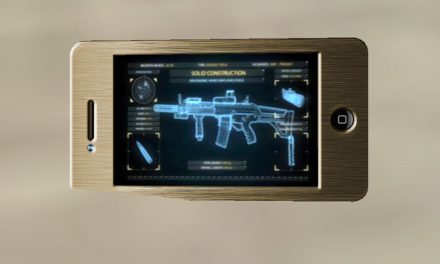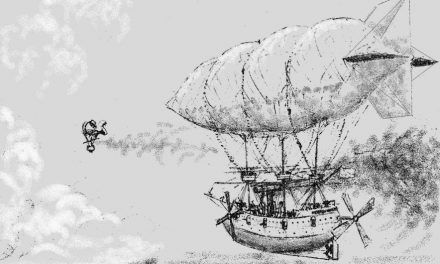 Prosthesis
Prosthesis
by
Laura Solomon
The new right arm was a welcome addition. He’d lost his old paw by neglecting his diabetes and contracting gangrene from below the shoulder. They’d been forced to amputate or the gangrene would have spread. The arm was black and fashioned from carbon fibre. He was a pianist; it was important that the fingers worked and that the sensors in the fingertips offered feedback. He had complete control over all five fingers. There were tactile pads which controlled how fast the fingers opened and closed. The fake arm used electrodes stuck onto the outside of his upper arm to sense muscular impulses in the residual limb. The signals from these electrodes were picked up by artificial sensors in the prosthetic arm, where a touch and pressure feedback system sent signals back to the brain. He could feel what he was doing without having to look. Artificial nerves; artificial feelings. He could use the hand in the dark.
The socket was carefully mounded around a plaster cast taken from a residual limb. The stump changed shape and size over the years, so new sockets were needed from time to time. The artificial arm was controlled by the brain. When he thought “I want to move my fingers”, his brain stimulated muscles in his residual limb to move and the prosthetic arm would shift accordingly. Transhumanism. The hand was strong enough to crush a can. It could be cleaned with baby wipes but was not to be used in a shower or pool. It cost approximately $50,000. He had inherited the money to pay for it from his grandfather who had owned a supermarket chain.
He played on cruise ships. He was a hit with the women. The hand gave them something to talk about. There were ladies, many ladies, cruising the world on their husband’s pensions. Predictably, the husbands got jealous. He got tired of playing the same old standards and would occasionally break out into improvised jazz.
It was in 2019, when he had been playing on the ships for two years that it started. At first he thought that he was imagining things, but then it became obvious that he was no longer the leader, he was now the follower. The hand was leading the way, playing on its own, capering around the piano like an out of control pony who had lost its reins. Try as he might to exert his will over it, he could not harness it. The hand had gone wild, broken free.
Something in its programming, no doubt, he thought to himself.
Out loud, to others, he was unsure of what to say. The hand was putting his job in danger. Half of the time the sound it came out with was harsh and discordant – far from easy on the ears. People were vacating the dining hall when he played, getting up and leaving, their meals half finished upon the table. Untamed, set free, the hand was dangerous, like a wild hawk that turns upon its owner.
They hadn’t warned him about this in the brochures! This hand could be the death of him if he wasn’t careful. It was out of control. It could get him in trouble, get him into very hot water. Unsure of how to handle the situation, he decided to telephone the company responsible for the hand’s manufacture.
The phone was picked up after three rings and answered by an efficient sounding voice.
“Good morning Watson and Sons. How can I help?”
“Hello I bought a prosthetic limb from you some months ago and it appears to be faulty.”
There was a pause.
“Can you please provide more information Sir.”
“I am a pianist and I rely on my hand to obey instructions from my brain. However, of late, it appears to have developed a mind and a will of its own. It’s gone crazy. It’s serious. My job is in danger.”
“That’s no good. Can you provide me with the make and model number please. It’s located on the base of the unit.”
He took off his limb and looked at the base. The numbers were worn but visible.
“The make is Pros365. The model is Proton3000.”
“Thank you very much for that information. What’s your phone number please?”
He recited the number.
“I’ll look into it and call you back.”
She hung up rather abruptly and he was left with the dial tone ringing in his ear.
Time passed and the hand did not modify its behavior. If anything, it got worse. It turned randy. When women would stand by his piano to listen to his playing (which they did less and less these days) it would try and force itself down their tops or up their skirts. These women (who were proper and often fancied themselves as upper class) were horrified by the hand’s behavior and would blame it on him. The hand was slapped, but so was he – in the face. It was no use trying to explain that he was not responsible for the hand’s habits. It was connected to him, and so the ladies’ reasoned, it was him!
The manager took him to one side.
“Listen. These antics cannot continue. I’ve been turning a blind eye up until now because I knew that you needed a job. However, it is up to me to run a respectable ship. There are rules to be followed. Your wild playing is way out of line. And as for your recent ways with the women….I am going to have to let you go. Without notice.”
The hand grabbed the manager by the throat and squeezed. The pianist was horrified. Was the hand capable of murder? He tried to will it to let go but it only tightened its grip. The manager started turning red in the face and struggling for breath. The pianist began to panic, his stomach churning. What would be the consequences of this? Would charges be pressed?
Finally, the hand released its grip. The blood drained out of the strangled man’s throat.
“Right that’s it. You’re leaving at the next port. We’re calling in at Sydney tomorrow. You’re to stay in your cabin until then. I don’t want you roaming the ship. You’re dangerous. You’re lucky I’m not calling the police.”
Back in his cabin, the pianist mused on recent events. The hand had got him into trouble, deep trouble. He wanted to return it to the manufacturer. He wanted his money back. There was nothing for it – he would have to return it to where it had come from and ask for a refund. He should have known it was too good to be true – an all singing, all dancing hand that could play the piano in an accomplished manner. A hand that could play as competently as a real human hand. The hand was possessed.
He had purchased the hand from the suburbs of Sydney, in Darlington, in an old disused warehouse that had been converted. It had been manufactured by a bunch of ex-programmers who had banded together, having left their former companies. He should have known better than to buy it on the black market.
He disembarked at Sydney, went home to his flat in Newtown and the next day, took a bus out to where the warehouse was located. Old newspapers were blown down the street by the wind and a few mangy looking cats roamed around. Seeing the warehouse up ahead of him, he did not take the front entrance. Instead he snuck in around the back and had a good snoop around. There were several large television screens mounted upon the walls. On the TV screens were displayed a number of amputees making fools of themselves; joggers running backwards, ballet dancers doing the highland fling, skiers crashing into other skiers. He was so engrossed in the action that he did not notice that somebody else had entered the room. Suddenly the screens were switched off, went blank.
“Well what have we here then? Bit of a nosey parker, is it?”
The pianist froze. Busted. A man with a glass eye walked into his field of vision.
“Thought you’d come and see what was what, did you?” he said in an extremely intimidating manner.
He wore a long black overcoat and walked with a cane. The pianist gathered his courage.
“All these people on the screens. They’re all amputees that you’re meant to be helping. But you’re ruining their lives. You’re selling them faulty limbs and so they’re making idiots of themselves in public. You’re ruining careers. It’s not fair. You need to stop it. Right now. It’s evil, pure evil.”
The man with the glass eye laughed.
“The world is evil”, he said. “Anybody who claims otherwise is a naïve idiot. We’ve all been hard done by. We’ve all been fired from our jobs – without redundancy packages I might add. Severance without pay. This is what you get when programmers go to the dark side. This is what you get when global corporations don’t treat people right. Surveillance cameras are fitted into the prosthetic limbs so we back here at base can have a good laugh.”
The pianist couldn’t help himself. A sob escaped his lips.
“How could you?” he shouted. “How could you take it out on defenseless amputees? Those people are already down on their luck. They’ve lost a limb and often their livelihood with it. What you’ve done is the lowest of the low.”
The head developer looked ashamed.
“What about what happened to me? What about how I was treated?”
“You shouldn’t abuse other people just because you’ve been mis-treated. I know it’s hard but you need to try and rise above the harsh blows. To absorb them somehow without giving hatred back. You’re obviously very talented. Can’t you put your talents to use for good rather than evil?”
There was a lengthy pause.
“I’ll leave you with that thought,” said the pianist and left the building.
The pianist returned to his rented accommodation. How the hell was he going to survive without the money that playing on the cruise ships brought in? There were other more serious considerations too. The hand had stopped obeying him when he was eating. It would play up, play silly buggers, flick food onto the floor and onto the far wall, treating his eating like a game. He had got around this problem by using his other arm (thank God he hadn’t lost both to gangrene!). He was right-handed so everything was awkward, but then everything had been awkward since losing his arm. Food preparation was also a problem – he could no longer use the prosthetic arm for this as it would go crazy with the knives and attempt to chop at his good hand.
He had been at home for five days when things started to come right. He was eating his morning muesli and decided to give the prosthetic hand a tentative try with the milk pouring. Miraculously, it obeyed! The milk did not spill over onto the table as he had feared that it might, instead it flowed smoothly into his bowl. He decided to give the arm a go with the spoon. He shifted the silver implement from his left hand into his right and focused hard on sending the correct signals from his brain to his residual limb. More success! The spoon rose effortlessly to his mouth – the food was delivered, chewed and digested.
In the past, the hand had not complied when he was dressing. Today, it behaved perfectly, doing up the buttons on his shirt and zipping up his fly, pulling on his socks and tying the laces on his shoes. It was nothing short of a miracle.
The next day there was an article in the Sydney Morning Herald.
Police were pleasantly surprised today when they went to investigate suspicious happenings in a warehouse in Darlington. Tipped off by an amputee who wishes to remain anonymous, the police were seeking to arrest Andrew Edwards, and were seeking evidence that he had been controlling prosthetic limbs remotely and in a malicious manner, seeking to harm others. However, when they arrived at the warehouse from which Mr. Edwards and his colleagues work, Mr. Edwards confessed that although he had been remotely controlling the limbs in the past he had now seen the error of his ways and that the prosthetic limbs were now fully controlled by the amputee’s brains. Mr. Edwards had assured police that he has now disabled the capability for the software to be controlled remotely. Over ten amputees have filed claims against Mr. Edwards, but they are now reporting that their limbs are working properly again. No charges will be pressed but several of the victims are seeking damages.
The pianist filed for damages and was awarded $30,000 for loss of earnings. Several weeks after the money arrived in his bank account a small newspaper clipping arrived in the post.
Pianist wanted for cabaret bar.
Must be able to work evenings and weekends.
Tel. 9651 2455
The initials A.E. were penned in the right hand corner of the clipping with the words ‘good luck’ written afterwards.
Laura Solomon has a 2.1 in English Literature (Victoria University, 1997) and a Masters degree in Computer Science (University of London, 2003).
Her books include Black Light, Nothing Lasting, Alternative Medicine, An Imitation of Life, Instant Messages, Vera Magpie, Hilary and David, In Vitro, The Shingle Bar Taniwha and Other Stories, University Days, Freda Kahlo’s Cry and Brain Graft.
She has won prizes in Bridport, Edwin Morgan, Ware Poets, Willesden Herald, Mere Literary Festival, and Essex Poetry Festival competitions.
She was short-listed for the 2009 Virginia Prize and the 2014 International Rubery Award and won the 2009 Proverse Prize. She has had work accepted in the Edinburgh Review and Wasafiri (UK), Takahe and Landfall (NZ). She has judged the Sentinel Quarterly Short Story Competition.
Her play ‘The Dummy Bride’ was part of the 1996 Wellington Fringe Festival and her play ‘Sprout’ was part of the 2005 Edinburgh Fringe Festival.
Her website is www.laurasolomon.co.nz
Special Note: Laura Solomon is a survivor of brain cancer, after a craniotomy to remove a brain tumor four years ago, she continues to fight brain cancer. She has been diligently writing full time ever since. Laura asked if she could give special thanks to Brian Shirra, a Scottish writer and her friend Jacquie Mills who have been helping her with writing.
Hats off Readers and Authors! There is nothing like the power of wordsmithing and our good friends and loved ones that help us achieve our passion.
M




